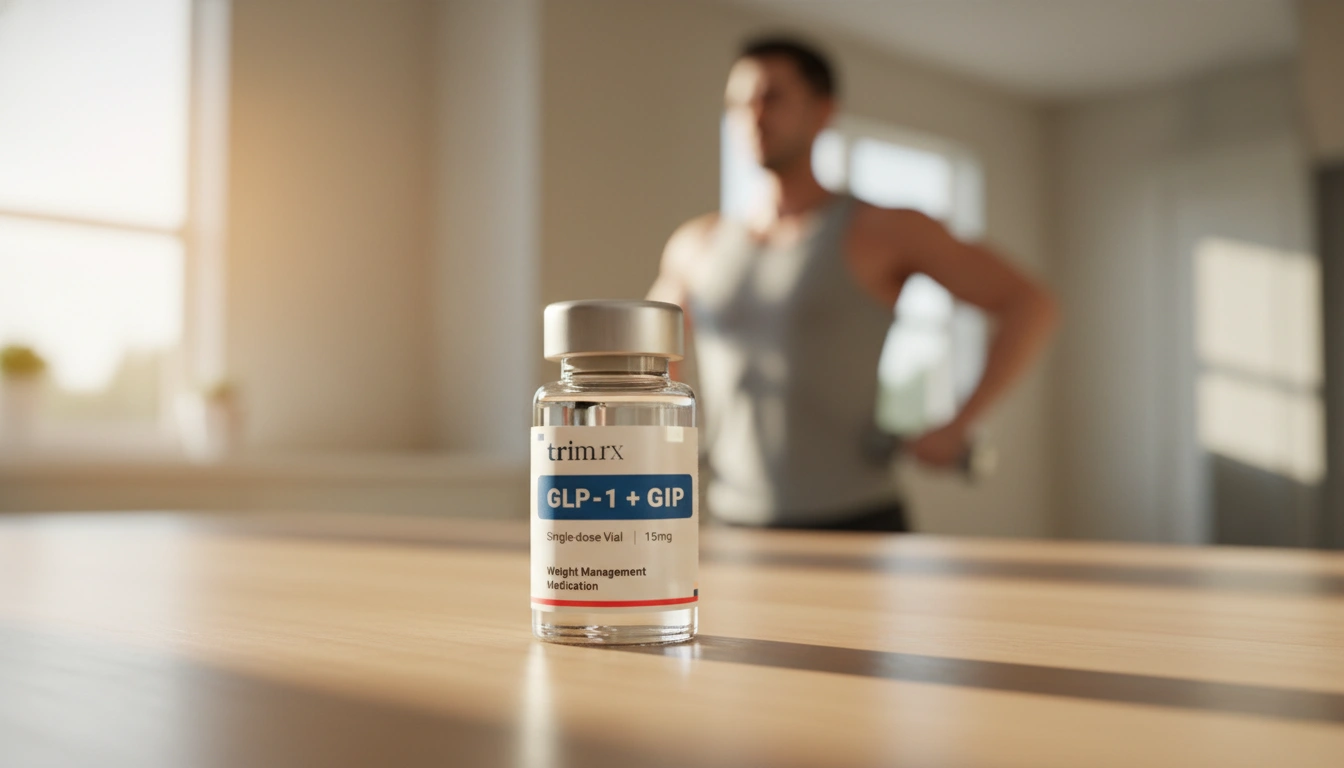Why Do GLP-1 Medications Cause Hair Loss? Insights and Understanding

Introduction
Have you ever found yourself questioning the impact of a medication on your overall well-being? If you’re taking a GLP-1 medication, such as Ozempic or Wegovy, you might be surprised to learn that hair loss is a concern for some users. Although hair loss can be an emotional and distressing experience, it’s essential to understand the reasons behind it. With the rise of GLP-1 medications for weight loss and diabetes management, many individuals are encountering this side effect, leading to questions about its causes and whether it is a temporary or permanent issue.
In this blog post, we will delve into the relationship between GLP-1 medications and hair loss. We will explore potential physiological mechanisms, the role of weight loss in hair health, and practical steps to mitigate hair loss while using these medications. By the end of this article, you will have a deeper understanding of why GLP-1 medications may lead to hair loss and how to navigate this concern effectively.
Together, we will examine the nuances of this topic, focusing on the scientific explanations behind hair loss related to GLP-1 medications. We will also discuss lifestyle adjustments, dietary considerations, and the importance of personalized care in addressing this issue. Our aim is to equip you with actionable insights to help you maintain your hair health while pursuing your weight loss journey.
Understanding GLP-1 Medications
GLP-1 (glucagon-like peptide-1) medications, such as Ozempic and Wegovy, are increasingly recognized for their role in managing type 2 diabetes and promoting weight loss. These medications work by mimicking a hormone in the body that regulates appetite and insulin secretion. As a result, they can lead to significant weight loss for many individuals. However, the journey towards achieving a healthier weight can come with side effects, including hair loss.
How GLP-1 Medications Work
GLP-1 medications activate receptors that help control blood sugar levels and reduce appetite. By enhancing insulin secretion and delaying gastric emptying, these medications can help individuals feel fuller for longer periods, ultimately leading to reduced caloric intake. As more individuals turn to these medications for weight management, the conversation around their side effects, including hair loss, becomes increasingly important.
Side Effects of GLP-1 Medications
While GLP-1 medications are generally well-tolerated, they may cause a range of side effects, including:
- Gastrointestinal Issues: Nausea, vomiting, and diarrhea are common side effects that can affect appetite and nutritional intake.
- Weight Loss: Rapid weight loss can place stress on the body, potentially leading to hair loss.
- Hormonal Changes: Changes in insulin and other hormones may disrupt the hair growth cycle, contributing to hair thinning or loss.
Understanding these side effects is crucial for anyone considering or currently using GLP-1 medications. It emphasizes the need for a comprehensive approach to weight management, including regular consultations with healthcare professionals.
The Link Between GLP-1 Medications and Hair Loss
The Mechanism of Hair Loss
The connection between GLP-1 medications and hair loss is not entirely straightforward. While there is no definitive evidence that these medications directly cause hair loss, several theories have been proposed:
-
Nutritional Deficiencies: As GLP-1 medications can suppress appetite, individuals may consume fewer nutrients essential for hair health, such as proteins, vitamins, and minerals. Deficiencies in nutrients like biotin, zinc, and iron can lead to hair thinning or loss.
-
Rapid Weight Loss: Sudden weight loss can trigger a condition known as telogen effluvium, where a larger proportion of hair follicles enter the resting phase, leading to increased shedding. This phenomenon is not exclusive to GLP-1 medications but can occur with any significant weight loss.
-
Hormonal Fluctuations: Weight loss and changes in body composition can affect hormone levels, including those that influence hair growth. For instance, fluctuations in insulin and other hormones may disrupt the normal hair growth cycle.
Telogen Effluvium Explained
Telogen effluvium is a temporary form of hair loss that occurs when a significant stressor triggers hair follicles to enter the telogen (resting) phase prematurely. This phase typically lasts for about three months, during which hair growth ceases, leading to noticeable shedding.
- Triggers for Telogen Effluvium: Common triggers include rapid weight loss, hormonal changes, nutritional deficiencies, and stress. Notably, telogen effluvium is usually reversible, with hair regrowth expected once the underlying cause is addressed.
Observations from Clinical Studies
Recent studies have shown a potential link between GLP-1 medications and increased hair loss risk, particularly among women. For instance, one study indicated that individuals taking semaglutide had a 50% higher risk of being diagnosed with hair loss compared to those on alternative obesity treatments. However, it is essential to interpret these findings cautiously, as hair loss can be multifactorial and not solely attributed to medication use.
Mitigating Hair Loss While Using GLP-1 Medications
Nutritional Considerations
Maintaining a balanced diet while on GLP-1 medications is crucial for overall health, including hair health. Here are some practical tips to consider:
-
Consult a Registered Dietitian: Working with a registered dietitian can help tailor a diet plan that meets your nutritional needs while considering the effects of GLP-1 medications.
-
Focus on Protein Intake: Ensure adequate protein consumption to support hair growth. Include lean meats, legumes, nuts, and dairy products in your diet.
-
Supplementation: If you suspect nutrient deficiencies, consider discussing supplementation with your healthcare provider. Nutrients such as biotin, zinc, and iron are vital for hair health.
Lifestyle Adjustments
In addition to dietary changes, certain lifestyle modifications can promote hair health:
-
Stress Management: Engage in stress-reducing activities, such as mindfulness, yoga, or meditation. Lowering stress levels can positively impact hair growth.
-
Gentle Hair Care: Avoid harsh treatments and tight hairstyles that may cause additional stress to your hair. Opt for mild shampoos and conditioners, and minimize heat styling.
Regular Monitoring and Consultation
At TrimRx, we emphasize the importance of personalized care and regular monitoring. If you experience hair loss or any other side effects while using GLP-1 medications, consult your healthcare provider. They can evaluate your treatment plan, recommend adjustments, and explore potential underlying causes.
The Role of TrimRx in Your Weight Loss Journey
At TrimRx, our mission is to support individuals in achieving their weight loss goals through personalized, medically supervised care. We believe that sustainable weight loss should be achieved through a combination of science, empathy, and a transparent approach. Our platform provides a user-friendly space where individuals can access personalized treatment plans tailored to their unique needs and health profiles.
Personalized Assessment Quiz
To determine eligibility for our prescription weight loss medications, we encourage you to take our free assessment quiz. This quiz helps us craft a treatment plan that aligns with your personal health goals, giving you the best chance of success in your weight loss journey. Take the quiz here: TrimRx Assessment Quiz.
Quick-Access Supplements
In addition to personalized medications, we offer quick-access supplements that support overall wellness during your weight loss journey. Our GLP-1 Daily Support and Weight Loss Boost supplements are designed to complement your efforts and promote better health. Explore our offerings here:
Conclusion
Understanding the potential connection between GLP-1 medications and hair loss is essential for anyone considering or currently using these treatments. While hair loss can be a distressing side effect, it is often temporary and manageable with the right approach. By maintaining a balanced diet, managing stress, and consulting healthcare professionals regularly, you can support your hair health while navigating your weight loss journey.
At TrimRx, we are committed to providing compassionate care, personalized treatment plans, and ongoing support. Remember, you are not alone in this journey, and our team is here to help you achieve your health goals safely and effectively.
FAQ
Is hair loss from GLP-1 medications permanent?
Hair loss related to GLP-1 medications is typically temporary and often resolves once weight stabilizes and nutritional intake is optimized.
What can I do to prevent hair loss while using GLP-1 medications?
Focus on maintaining a balanced diet rich in essential nutrients, manage stress effectively, and consult healthcare providers for personalized recommendations.
How long does telogen effluvium last?
Telogen effluvium usually begins about three months after a triggering event and can last for several months, with regrowth expected once the underlying cause is addressed.
Should I stop taking my GLP-1 medication if I experience hair loss?
Consult your healthcare provider before making any changes to your medication regimen. They can help determine the best course of action based on your individual health needs.
Can I take supplements to support hair health while on GLP-1 medications?
Yes, but it’s essential to consult your healthcare provider before starting any supplements to ensure they are appropriate for your specific situation.

Transforming Lives, One Step at a Time
Keep reading
China’s Supreme Court Upholds Semaglutide Patent for Novo Nordisk
China’s Supreme People’s Court upholds Novo Nordisk’s semaglutide compound patent, supporting IP protection.
Over 600,000 Californians Risk Losing Access to GLP-1 Weight-Loss Drugs
California’s Medi-Cal will stop covering GLP-1 weight-loss drugs for weight-loss-only prescriptions, effective Jan. 1, 2026.
Weight-Loss Pill Approval Likely to Prompt Overhaul of Packaged Food and Fast-Food Products
FDA approval of GLP-1 weight-loss pills may prompt food makers and restaurants to shift to high-protein, smaller-portion products.



